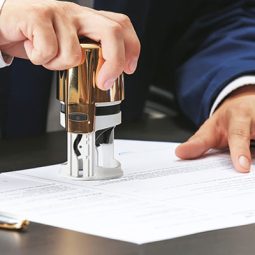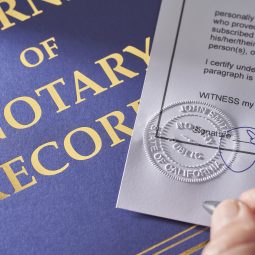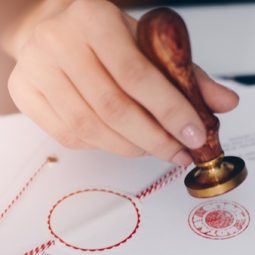- Email: notary@theconcierge.net
- Phone: (844) 974-2463
- Fax: (407) 379-9500
There are a few things that are critical for making sure your mobile notary signing can be completed under Florida Law:



The signer(s) being notarized must be physically in the State of Florida in the presence of the Notary at the time of the Florida notarization.
NOTE: If your document requires witnesses, you must bring them with you and they must meet the ID Requirements to sign. Failure to bring witnesses will cause the session to be cancelled. You will be responsible for TRAVEL FEES, if cancelled due to not having required witnesses. (If no travel fee is charged, a minimum of $10 will be charged for cancellation.
IMPORTANT NOTE: The witnesses cannot be a party to the trust either, meaning they cannot be a beneficiary, settlor, or trustee. TheConcierge.Net is not permitted and does not provide witnesses.
The signer(s) must have government issued photo ID that covers the names shown on the document (for example, if your middle name is spelled out on the document, it must be spelled out on your photo ID). The ID can have more than the document, but it cannot show less.
You must have the physical document that is being notarized. A Florida Notary is not permitted to draft documents or provide legal documents at the notarization. We can, however, print the document for you from email (See Fee Section).
Note: Please try to print the documents at least 1 hour before TheConcierge.net Mobile Notary appointment. This will allow you to warn us if you have trouble printing and to give you time to proofread the document. We are not notarizing the contents of the document but the actual signing (Notarial Act), therefore we are not responsible for any errors in your document(s).
You must make sure the name on the document is spelled correctly and checked against the signer’s ID. The ID can have more of the name than what is on the document, but not less. It is okay to use a commonly known nickname on your documents, like Jim for James (where “James” is on the ID, but document says “Jim”).
We cannot notarize incomplete documents. The document is not permitted with incomplete blank lines or missing information above your signature line. We cannot notarize just the last “signature page” without the rest of the document present.
All signers need to be competent to sign and be fully alert able to prove to the notary that they understand the contents being signed. Nodding is not sufficient. If the signer cannot speak, then he or she will need to be able to write out complete sentences to questions like: “Please explain what a Power of Attorney is or does?” We cannot notarize someone with a diagnosis of Alzheimer’s or dementia or anyone on medication or under the influence where the signer is extremely drowsy.
Each signer needs to be able to explain what he or she is signing in English directly to the notary, without a translator. It is not a problem if the document is in a foreign language, but the notarial section that we sign has to be in English.
The signer needs to be able to sign in a way that resembles a signature, even if it no longer looks like the original signature on an ID. If the signer can only make a small mark or “x” on the signature line, then that is considered “signature by mark” and it adds additional layers of complexity that we are, unfortunately, not set up to handle.
Florida has statutory acknowledgment and jurat certificate forms for use when a Notary notarizes a mark. NOTE: Florida also requires two witnesses who must have no interest in the document being notarized.